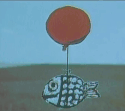|
D-Pad posted:Jesus I knew the Iowa's were big but not that big Length is how you get speed. The less drastic the taper is at the front of the ship, the more slowly it can move water out of the way, the less energy it expends doing so, the faster it can go. The Iowas, being exceptionally fast battleships, had to be long.
|
|
|
|

|
| # ? Jun 4, 2024 11:58 |
|
D-Pad posted:What's the most modern ship to be preserved as a museum? Has there been any since WW2? The Australians have two Cold War-era vessels—a destroyer and a submarine—at the Australian National Maritime Museum in Sydney.
|
|
|
|
Getting into FX' Shōgun (it's pretty nifty!), set in Japan in 1600, and there's a historical situation I don't quite get: We learn that the Portuguese gatekeep trade by withholding knowledge of the Japanese islands from the other nations. However, I learned in school that the Dutch were the ones who initially traded with Japan until America arrived with gunboats in the late 1800s? Who got in first, and how did it develop?
|
|
|
|
Tias posted:Getting into FX' Shōgun (it's pretty nifty!), set in Japan in 1600, and there's a historical situation I don't quite get: We learn that the Portuguese gatekeep trade by withholding knowledge of the Japanese islands from the other nations. However, I learned in school that the Dutch were the ones who initially traded with Japan until America arrived with gunboats in the late 1800s? Who got in first, and how did it develop? The Portuguese came first, and showed up during the Sengoku period, bringing firearms, which the Japanese adopted and built themselves fairly quickly. William Adams(who John Blackthorne is vaguely based on) then showed up and became a friend of Tokugawa Ieyasu and Itetada he kind of managed to convince the Shogun that the Portuguese would be a problem, and eventually in the 1630s the closing edicts started to come down and the trade with Europeans was strictly limited to the Dutch on Dejima, because unlike the English they actually had good products and unlike the Portuguese and Spanish they wouldn't generally be trying to engage in their missionary work. And this strictly limited trade was the way of things until the 1850s.
|
|
|
|
The Portuguese had a ~50 year head start on the rest of Europe, they were already active in Asia, specifically China, since the early 1500s and first arrived in Japan in 1542 I believe. It's referenced in the show but the Portuguese and Spanish controlled the Strait of Magellan as well as the Horn of Africa, so it was very difficult for anyone else to get to the Pacific. The Dutch didn't even arrive until 1600 (hence the events of Shogun) and they didn't have formal trade for a few years after that.
|
|
|
|
Jamwad Hilder posted:The Portuguese had a ~50 year head start on the rest of Europe, they were already active in Asia, specifically China, since the early 1500s and first arrived in Japan in 1542 I believe. It's referenced in the show but the Portuguese and Spanish controlled the Strait of Magellan as well as the Horn of Africa, so it was very difficult for anyone else to get to the Pacific. The Dutch didn't even arrive until 1600 (hence the events of Shogun) and they didn't have formal trade for a few years after that. Yeah even when Adams was a part of the Tokugawa court it took a while for the Dutch to actually be able to send anything up because of the Portuguese and Spanish dominance in Asia basing. Da Gama heralded the start of absolute Portuguese dominance of the Indian Ocean and expansion into the rest of Asia in a fairly quick time.
|
|
|
|
https://twitter.com/EmmaTolkin/status/1769742884683604441?t=FXQhXluoUr034L3c0qSMxA&s=19
|
|
|
|
It's a fun show. It made me go and read the two books its based on. Which were good reads except that the story ends well before Sekigahara, which was summed up in two paragraphs with a handwave. I know the guy went on to write several more books, but it very much felt like he died and someone came along, found an unfinished manuscript and was like "okay we need to sell this so here is your happily ever after summation". I'm optimistic for the rest of the FX show though as it continues on, especially the last half or so of the second book.
|
|
|
|
echopapa posted:The Australians have two Cold War-era vessels—a destroyer and a submarine—at the Australian National Maritime Museum in Sydney. I don't remember much about the destroyer but the submarine, HMAS Onslow, is pretty cool. The tour guide really brought to life a large number of dudes living in a tube with a diesel engine and weekly showers. No idea if it's true but he claimed the funk was so bad they never bothered washing uniforms after a tour, just binned them. You always knew a submariner by the smell.
|
|
|
|
Panzeh posted:and eventually in the 1630s the closing edicts started to come down and the trade with Europeans was strictly limited to the Dutch on Dejima How strict was that closure? Did they keep up to date with international politics and scientific discovery, or was it a sort of national hubris where Japan knows best?
|
|
|
|
D-Pad posted:What's the most modern ship to be preserved as a museum? Has there been any since WW2? I'm not sure how "modern" that is, but another Cold War Era ship is museumized in the Militärhistorisches Museum der Bundeswehr in Dresden, Germany. The ship is an old mining detection ship from 1968, the Atlantis. You can visit in the Albertshafen, about 5 km from the museum itself. (And if you're into space, the museum also has the Sojus 29 capsule back after a stint in Munic, it was the capsule the first German astronaut, Siegmund Jähn, came back home in, during the Sojus 31 mission.) And the Technik-Museum Speyer has the U-9 of the Bundesmarine available for a visit. (U-9 was of the class 205, and the U-9 served from 1967-1993) The same museum also has lots of planes and a Buran-prototype on display! Finally, the Deutsches Marinemuseum has four museums ships available, all from the Cold War Era or later: -The G71 Gepard Schnellboot, from the 1980s -Missile Destroyer D186 Mölders, served from 1969 until 2003 -Minenjagdboot M 1077 „Weilheim“* -U-10, another class 205, also served into the 90s *from the Lindau-class, one of the first designs constructed for the new Bundeswehr.
|
|
|
|
Libluini posted:(And if you're into space, the museum also has the Sojus 29 capsule back after a stint in Munic, it was the capsule the first German astronaut, Siegmund Jähn, came back home in, during the Sojus 31 mission.) Huh. Today I learned what the German spelling of Soyuz/Союз is. I don't know why, but I've always found the way that Russian words get Germanized a little fascinating.
|
|
|
|
USS Pueblo is still on display in North Korea. I wouldn't recommend visiting
|
|
|
|
Cyrano4747 posted:Huh. Today I learned what the German spelling of Soyuz/Союз is. The German transcription system for Cyrillic is objectively better than what we have in English. And it's not even as good as its neighbors.
|
|
|
|
Cyrillicized forms of German and English names are also fun. You probably know who Genrikh Gimmler is. But who is Dzordz Uoker Buš?
|
|
|
|
Elissimpark posted:I don't remember much about the destroyer but the submarine, HMAS Onslow, is pretty cool. The tour guide really brought to life a large number of dudes living in a tube with a diesel engine and weekly showers. No idea if it's true but he claimed the funk was so bad they never bothered washing uniforms after a tour, just binned them. You always knew a submariner by the smell. Most of the museum boats I’ve been on still stink like diesel and hydraulic oil after decades of inactivity.
|
|
|
|
Nenonen posted:Cyrillicized forms of German and English names are also fun. You probably know who Genrikh Gimmler is. But who is Dzordz Uoker Buš? Dzordz Uoker Buš is a Gundam villain name if I ever saw one. Googling it even more so 
|
|
|
|
Bulgaroctonus posted:It’s only tangentially milhist but have any of y’all read The Fatal Shore? Would especially like to hear from non-Americans. I liked it, as an American. Is the writer known for being hung up on American history or something? e: I read the Fatal Impact. Fatal Shore looks amazing though, I'll give it a shot. sleepy.eyes fucked around with this message at 17:21 on Mar 31, 2024 |
|
|
|
busalover posted:How strict was that closure? Did they keep up to date with international politics and scientific discovery, or was it a sort of national hubris where Japan knows best? It was strictly limited to Dejima, but a lot of knowledge made its way through. My favorite example is the quintessentially traditional Japanese woodblock print -- Hokusai's Great Wave -- is made using the (then very new) Prussian Blue as one of its main dyes. To be slightly glib Joseon was more isolationist in a bit of a chauvinistic way; my very hand wavey non-expert impression is that Japan was both a bit more precocious in looking out for foreign knowledge while also being decentralized enough that interest could be found somewhere in the country even if there was widespread dismissiveness elsewhere. Whereas Joseon strongly disliked Qing, looked down on everybody else, and foreign trade was centrally managed enough that things wouldn't seep around the country in quite the same way. And yet even then, you European-informed fortress design in the 18th century, and Korea's first Christians were from a scholar who got hold of a bible in Qing and converted himself by studying it, so even there ideas permeated.
|
|
|
|
Nenonen posted:Cyrillicized forms of German and English names are also fun. You probably know who Genrikh Gimmler is. But who is Dzordz Uoker Buš? It's Dubya! 
|
|
|
Koramei posted:It was strictly limited to Dejima, but a lot of knowledge made its way through. My favorite example is the quintessentially traditional Japanese woodblock print -- Hokusai's Great Wave -- is made using the (then very new) Prussian Blue as one of its main dyes.
|
|
|
|
|
So what exactly was a commission, when an officer would buy one? Like, specifically. How much and of what? Was it lump sum or an annuity? I was thinking about when a wealthier, older person would buy an officer his commission, and wondering what that entailed. Which lead me to realize that while I thought I knew what a commission was, I don’t actually know anything besides the vaguest sketch. I know that’s vague, but it’s because I want all the information.
|
|
|
|
Xiahou Dun posted:So what exactly was a commission, when an officer would buy one? Like, specifically. How much and of what? Was it lump sum or an annuity? Depends on the military. Generally, buying a commission (or a Patent in German) only got you the title and a guaranteed place in a military unit. Apart from that, from memory I know the pre-revolutionary French Kingdom allowed people to buy commissions for general or admiral rank, which was a very  decision to allow. decision to allow.In saner military, you'd generally get your son a Leutnants-Patent for the 69. Preußischen Hofschwadronen or whatever, and then your son would have to pay for equipment and uniform, and would then just automatically be a Leutnant of this regiment. During the 30-Years-War, you'd get e.g. cases where someone bought a Captain's Commission and then started raising their own company, which of course meant you were now responsible for not only your own uniform and equipment, but also for equipment, training, supply and payment of your entire unit. Quite a difference from how later Frederick II's Prussia would handle things! So it depends on both era and country. The only thing that's always true is that you hand over money to gain a military rank. All the additional costs and duties can range from "your own uniform" all the way up to "the cost of creating and maintaining an entire regiment". Edit: To get a bit more specific, to my knowledge buying a Patent/Commission is a one time thing. The new Leutnant of the 42nd Preußischen Garderegiment for example, would get the title and an obligation to get uniform and equipment, and then the rest would be just normal military service. The Leutnant would even get paid a small stipend! Normally, uniform and other obligations would be paid by your daddy, or other rich dependant. For the same reason paying to become a French admiral was a sweet deal, if you could scrounge up the money and political capital to get the commission. If you did things right, the poor bastards would even give you a fleet to mismanage! Libluini fucked around with this message at 21:58 on Mar 31, 2024 |
|
|
|
For the British army around Napoleonic wars times I know a little. You purchased a commission into a specific rank and regiment. It was expensive, especially if you wanted one of the good/famous ones. Promotions were also purchased, if you were a captain and a major spot opened you'd buy that and sell your captains commission. It served as a retirement plan of sorts, once you were done you'd sell it and get a good chunk of money back. Not all promotions and commissions were bought though. Sometimes the army needed a guy who could be an effective captain and either needed it now or didn't have anyone around who wanted to buy it so you could have field promotions (where people would have a commissioned rank of captain but be a major for a campaign or whatever and then revert back after it all calmed down). Sometimes, especially in regiments that weren't fancy, or in times of war you'd get actual promotions to, such that some career soldiers saw that as the plan, buy in low, get promoted a bunch, sell that rank and retire on it. Wellington is a good example of talent and wealth using the system to get to very high rank very quickly. Also, while the gentry would purchase good ranks in good regiments, large amounts of the officer corps were much more middle class than shows like sharp would have you believe. We see it as a bit of an antiquated system but given wages didn't really cover expenses and it cost to get in, but you could sell it to get money back out, it did work to keep the officer corps somewhat young and motivated (though also class/wealth restricted which those of the time wouldn't see as a downside). An old guy really not into the whole war thing anymore has an incentive to sell up and move on, it's an economic up or out kind of incentive. Edit - random tidbit, Gazetted comes from this period too, when a commission was confirmed it was printed in the London Gazette and this became the term as it's when wider society would learn that Sir soandao was now a Colonel. Cast_No_Shadow fucked around with this message at 22:36 on Mar 31, 2024 |
|
|
|
busalover posted:How strict was that closure? Did they keep up to date with international politics and scientific discovery, or was it a sort of national hubris where Japan knows best? It was quite strict but the Japanese did import Dutch books and such, and they did ward off Russian attempts to open things up in the late 1700s early-mid 1800s. They definitely misunderstood that Holland was by the 1800s a rather weak power. There's a pretty internet famous book where the Japanese wrote about American history and made illustrations of Ben Franklin firing a huge cannon. When the Dutch were unable to do the Dejima trade, the Japanese did let the Americans do it under a Dutch flag for a brief period.
|
|
|
|
Cast_No_Shadow posted:Promotions were also purchased, if you were a captain and a major spot opened you'd buy that and sell your captains commission. It served as a retirement plan of sorts, once you were done you'd sell it and get a good chunk of money back. Yeah, army commissions were effectively investments. The purchaser was effectively putting up a bond on their continued good conduct, combat effectiveness and loyalty - if they failed in any of those areas they risked losing their commission and therefore an item of significant value. The 'salary' a commission brought was really a token stipend, especially in the later period when officer pay hadn't been updated to keep up with living costs. It was effectively a stipend to cover administrative costs. The bearer was expected to cover their own uniform and living expenses (and much of their equipment) from their own pockets and a commission in a prestigious regiment could effectively lock the buyer into some horrifically high mess bills to keep up the expected standard. The commission also entitled the holder to a portion (in relation to its value) of the regiment's income from prize money and loot. The hope was that you'd stump up for an entry-level commission, make enough income to pay the difference to upgrade to a higher rank every now and then, the regiment would perform well enough to maintain its reputation and image (and thus the value of its commissions) and then you'd cash out your commission and have enough to live off for the remainder of your life.
|
|
|
|
Did you have to find a buyer yourself, was there centralised marketplaces to list it, or could you sell it back to the crown?
|
|
|
|
Sounds like taking an ad in the London Gazette would've been in order.
|
|
|
|
Panzeh posted:It was quite strict but the Japanese did import Dutch books and such, and they did ward off Russian attempts to open things up in the late 1700s early-mid 1800s. They definitely misunderstood that Holland was by the 1800s a rather weak power. There's a pretty internet famous book where the Japanese wrote about American history and made illustrations of Ben Franklin firing a huge cannon. When the Dutch were unable to do the Dejima trade, the Japanese did let the Americans do it under a Dutch flag for a brief period. From what I remember the American revolution seriously confused the Chinese as well in their trade with the US with the Chinese attempting to get the US to trade under the British flag and not quite understanding the concept of the revolution or the idea of a federation the way the US was set up. https://thechinaproject.com/2023/02/22/the-empress-of-china-and-the-beginning-of-u-s-china-trade/ It seems like the issue was exacerbated by the murder of a Chinese man by a british. Gaius Marius fucked around with this message at 01:43 on Apr 1, 2024 |
|
|
|
Elissimpark posted:Sounds like taking an ad in the London Gazette would've been in order. For sale: foot regiment, never battled
|
|
|
|
midnight77 posted:For sale: foot regiment, never battled “Gently fusileered, looks like it’s barely campaigned.” Also thanks for the answers about commissions. I had naively assumed there’d be some complicated interplay between the commission and the unit itself. Like (once uniforms exist) the Army handles jackets and trousers but Lieutenants are responsible for hats.
|
|
|
|
Ice Fist posted:It's a fun show. It made me go and read the two books its based on. Which were good reads except that the story ends well before Sekigahara, which was summed up in two paragraphs with a handwave. I know the guy went on to write several more books, but it very much felt like he died and someone came along, found an unfinished manuscript and was like "okay we need to sell this so here is your happily ever after summation". Eh, I rather liked the ending myself - the whole point and theme of the book to my mind was all the various plots and schemes and conflicting goals and desires that everyone had, and the real wrapping up was getting a look into Toranaga's inner mind and seeing how neatly he put a bow on everything he did and had always five steps ahead of everyone else right up to the end (while simultaneously subtly getting some small things wrong because he's human after all, but still largely according to plan). Having a big messy dramatic chaotic battle on top of that would have gotten in the way of that summation, and in a way having it happen in that subtle, understated way emphasized the inevitability of his plotting - the battle wasn't important anymore, merely an expected consequence of his successful scheming. Come to think of it I wonder how the show will swing that, I remember that ending hitting me like a dump truck when I first read it but it's never had quite the same impact since and I dunno how well a show can portray the various inner dialogues that emphasized how everyone lived very much in a world of their own, even when they thought they understood each other. Also rereading the book when I'm older is kind of a trip since I can see the Orientalism a lot more clearly and I'm now entirely aware that the entire premise of the plot, that Western guns and linear tactics were some kind of mindblowing auto-win innovation to the Japanese, was basically nonsense and the writer was playing extremely fast and loose with the setting for his purposes. Which is fine for what it is, but it takes me out of the story somewhat more. Cast_No_Shadow posted:For the British army around Napoleonic wars times I know a little. All this talk about commissions is making me imagine a Regiment Flipper show. "When I brought into the 54th Dumptyshire I paid only five thousand quid and was overcharged for it, because it was full of slovenly drunks who didn't know which end of the bayonet to point towards the enemy. However, with just a little drilling, some investment in spit and polish, and a few battlefield heroics we were paraded before the King himself and I was able to cash out for twenty five thousand! If you want to see how I managed that, I'll be right back after a few messages from our sponsors!"
|
|
|
|
The Lone Badger posted:Did you have to find a buyer yourself, was there centralised marketplaces to list it, or could you sell it back to the crown? The way I understood it from when I was researching British Napoleonics is that there was enough demand that either you knew someone looking for your commission or there would be someone you knew professionally or socially that would put the word out and you'd have interest fairly quickly. There would be a bit of +/- depending on the rank and regiment, but they usually sold themselves.
|
|
|
|
I have an extremely specific question about what photography equipment Germans would be carrying on their person in WW2. With the Soviets it was pretty easy: you were issued a FED or a Fotokor or you found something on a German. With the Germans, what cameras would they be carrying? A Barnack Leica or a Zeiss Ikon Contax would be an obvious choice, but from what I can tell those were tremendously expensive for the rank and file. I assume that medium format cameras were also used (especially since the British loved their German-made Super Ikontas) but I have yet to see a single period photograph of anyone with a medium format camera. I've seen some Soviet negatives with photos through the sprocket holes, which means that at least one camera was captured and converted to use with 35 mm film but for the life of me I can't find any specifics. You also had the "Soldatenkamera" nickname for the Agfa Jsolette which I guess meant that it was popular with soldiers, but how popular was it really?
|
|
|
|
Ensign Expendable posted:I have an extremely specific question about what photography equipment Germans would be carrying on their person in WW2. With the Soviets it was pretty easy: you were issued a FED or a Fotokor or you found something on a German. With the Germans, what cameras would they be carrying? A Barnack Leica or a Zeiss Ikon Contax would be an obvious choice, but from what I can tell those were tremendously expensive for the rank and file. I assume that medium format cameras were also used (especially since the British loved their German-made Super Ikontas) but I have yet to see a single period photograph of anyone with a medium format camera. I've seen some Soviet negatives with photos through the sprocket holes, which means that at least one camera was captured and converted to use with 35 mm film but for the life of me I can't find any specifics. You also had the "Soldatenkamera" nickname for the Agfa Jsolette which I guess meant that it was popular with soldiers, but how popular was it really? German WWII Leicas have been very closely studied. Long story short is that there were quite a few, most didn't have very flashy markings, and that one you bought from a Polish flea market is definitely fake. Here's a summary that looks decent; I haven't read it word for word but it's consistent with what I remember from nerding out over this a few years ago: https://mikeeckman.com/2019/01/wehrmacht-leica/ As for medium format, I don't have any specific sources to point you at, but an era-appropriate German camera for reportage would be the Rolleiflex. You'd probably know where to find better sources using that general pointer (as opposed to SS cosplay forums). Another thing to consider is who was copying what. The British started a program to copy the Barnack Leica (resulting in the Reid) because it was considered militarily significant, and I seem to recall that the same happened to the Rolleiflex (which would've begat the Microcord? Phoneposting so I haven't checked). So you might have some luck researching the links between the Super Ikonta and the Moskva, as well as the Isolette and the Iskra, to figure out what cameras were considered good and important by various authorities at the time. If you're more interested in personal cameras of private soldiers, at the time simple box cameras (like the Kodak Brownie) would still be commonplace. A big German one would be the Zeiss Box Tengor.
|
|
|
|
The Lone Badger posted:Did you have to find a buyer yourself, was there centralised marketplaces to list it, or could you sell it back to the crown? Generally the process kinda went: 1st you offer it to lower ranked officers in your regiment in order of seniority. So if the Colonel retires, the senior major gets first refusal, followed by the junior major, then the captains iirc (who could leapfrog the majors if the majors couldn't afford or didn't want the promotion) and so on. Then it would go open market. For good postings you wouldn't have much trouble selling it at all. For poor one's I don't actually know if you could sell it back to the crown if there was no interest. There was also a kind of waiting list system that doesn't appear to be well understood (likely because each regiment did it differently and it wasn't really documented). If you wanted to join as an officer, were going to buy in fairly low but there wasn't space, you can kind of pay a small fee and just tag along with the regiment for a while until a spot opens up. You'd be like an officer, but not. Just following them around and waiting for someone to get promoted, quit, or die so you can get the open officer spot. So, especially in times of war or activity, you'd have a line of a few candidates there in field waiting for their shot. [This is also where gazetted comes in, you might get the role and it'd take months for all the paperwork to be sorted and for it to be announced in the Gazette]. For prestige postings this often meant someone with the dollars that really wanted to be Colonel of the kings own whatsits would often also bribe the junior officers to turn down the first offering so they could bid open market (or the offering would pass down to them if they were 5th in line to be offered, or their kid was etc). Another good way to make cash as a career officer. Also each commission has a book value, what the crown determines it's worth is, this value reflects the status of the regiment, horse guards etc being top dollar, bumfuck county foot regiment raised just for this war near the bottom. But the market value could be far in excess of that. Particularly for cavalry or very storied regiments. There are stories and evidence of people paying absurd sums to command specific regiments. [Edit] also worth noting that while the commission system was fairly standard, you could absolutely get promoted on merit without having to purchase, again, especially in times of war. There's a bunch of documented "Richard Sharpe's" who get promoted from the ranks and reach higher officer ranks (faster as well) than he does through merit based promotions. And yeah, those guys could then sell their merit based rank and make bank. Commanders would have a good idea of who were the competent commanders under them who could be given difficult jobs and who were the rich idiots who got simple roles. Cast_No_Shadow fucked around with this message at 11:40 on Apr 1, 2024 |
|
|
|
Gervasius posted:Not the most modern one but probably the most interesting, the French (of course) have a whole loving SSBN as museum in Cherbourg. It's really cool, has an audio tour in a bunch of languages if french isn't your jam and the aquarium/titanic exhibits attached to it are worth a visit as well
|
|
|
|
Dad Hominem posted:German WWII Leicas have been very closely studied. Long story short is that there were quite a few, most didn't have very flashy markings, and that one you bought from a Polish flea market is definitely fake. Here's a summary that looks decent; I haven't read it word for word but it's consistent with what I remember from nerding out over this a few years ago: https://mikeeckman.com/2019/01/wehrmacht-leica/ Yeah I've seen my share of fake Leicas, most of them are made from a Zorki with the very distinctive mushroom cap. They are also almost always painted in ridiculous colours. I would probably have been fine with a decent fake but it was much easier to buy a real pre-war FED and call it a day.
|
|
|
|
At what point do militaries go "we probably shouldnt have people in officer positions purely because they paid." Instead opting for the academy/old boys systems/educated professionals
|
|
|
|

|
| # ? Jun 4, 2024 11:58 |
|
prussians won the franco-prussian war with professional staff, everyone got on the bandwagon weeks to months afterwards. in the british case, it was gladstone that did it
|
|
|





















































